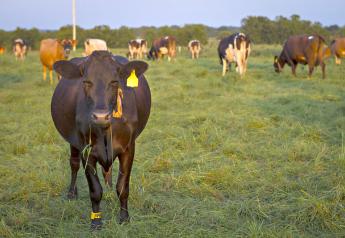Missouri Welcomes Dr. Steve Strubberg as State Veterinarian

The Missouri Department of Agriculture welcomed Dr. Steve Strubberg as the State Veterinarian of Missouri this spring. Interim State Veterinarian Dr. Taylor Woods, who has served the Department for over 20 years, mentored Dr. Strubberg for several weeks before officially handing over the reins of the Animal Health Division.
"We are very excited to have Dr. Strubberg join our leadership team here at the Department," Director of Agriculture Chris Chinn said. "The Animal Health Division protects the health of all livestock in our state, which is a tremendous responsibility. His experience leading a team of large and small animal veterinarians will be influential to his new role throughout our state."
Strubberg grew up in Union, Missouri, with the intentions of becoming a physician. Driven by his love for science, animals and the outdoors, he soon discovered his passion lie in a different field. In 1989, Strubberg received his Doctorate in Veterinary Medicine from the University of Missouri with a focus area in beef reproduction. Following graduation, he assumed ownership of Hermann Veterinary Clinic, a mixed animal practice in Hermann, Missouri, for nearly 30 years.
"It was wonderful to practice in one location for so long," said State Veterinarian Dr. Steve Strubberg. "I had the opportunity to work with several farmers and ranchers and, eventually, their children and grandchildren. After selling my practice two years ago, I was looking for a career that would still allow me to give back to the agriculture community. I am honored to be selected as State Veterinarian."
The Missouri State Veterinarian directs the Department of Agriculture's Animal Health Division, which is responsible for controlling, testing and eradicating livestock diseases in Missouri. This is accomplished through testing, vaccinations and regulatory programs that involve cattle, swine, horses, poultry, exotic animals, sheep, goats and small animals. The duty of the State Veterinarian is to develop and implement animal health programs that improve and protect the health of Missouri's livestock.
"My vision as Missouri's State Veterinarian is to continue to advance animal agriculture and keep it thriving within the state, while providing health and care for each individual animal," Strubberg said.
Assisting Strubberg will be Dr. Jean Schmidt. She began her role as Assistant State Veterinarian and Deputy Director of the Animal Health Division on June 1, 2019. Dr. Schmidt started working for the Department in 2011 and has a background in ruminant and equine practice. She is also professionally trained in emergency management and disease outbreak investigation.







